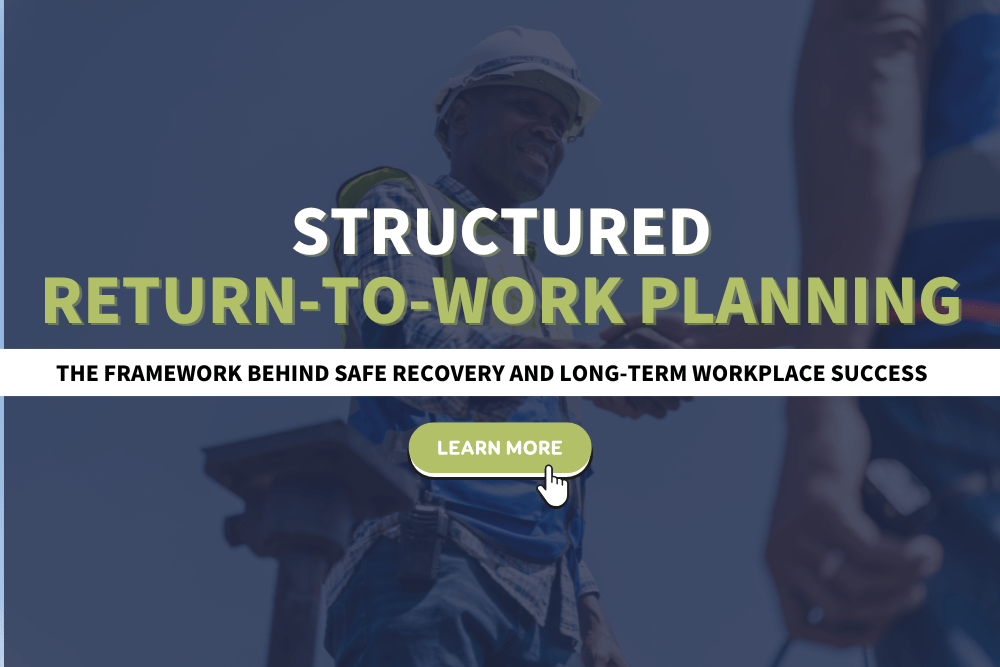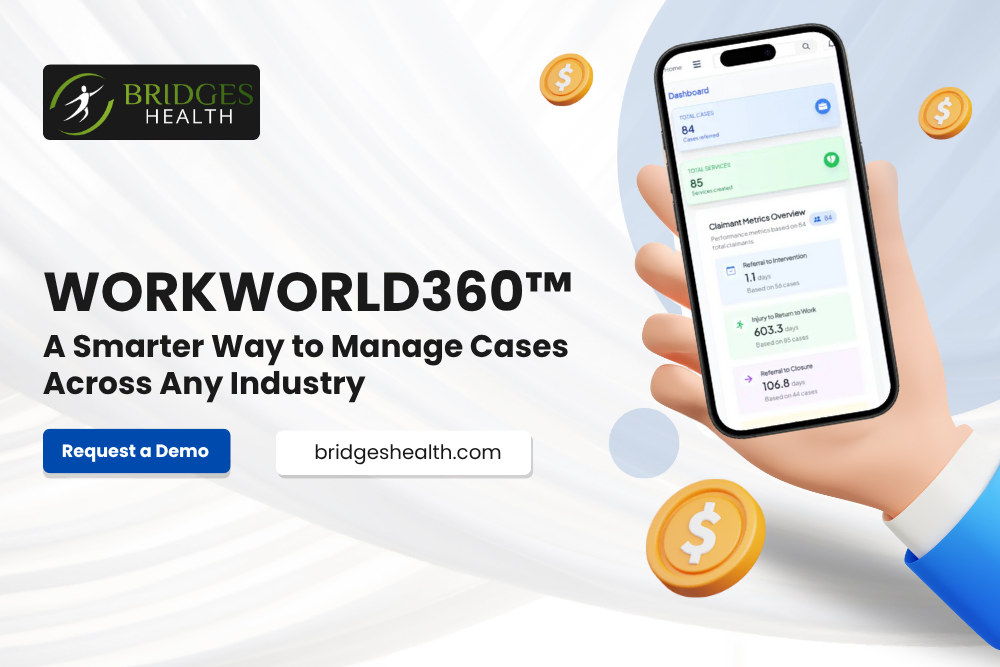In Canada, workplace injuries pose a significant financial burden for organizations across many industries. In 2018, out of the $29.4 billion associated with both unintentional and intentional injuries, $9 billion came from indirect costs. Indirect costs, such as lost productivity, aren’t covered by Workers’ Compensation Boards and create financial challenges for employers. As such, an increasing number of employers are outsourcing their workplace injury services to improve efficiency and ensure effective organizational support.
At Bridges Health, we’re here to help ensure organizations are confidently supported with our workplace injury management services. We’re 100% Canadian owned and operated. Read on to learn more.
#1 Reduced Downtime & Administrative Costs
Injuries should never be left to fester, and those that occur in the workplace are no exception. When an injury takes place on-site, timely intervention is crucial to ensure employees are treated with the care and navigation they deserve. The longer each step takes, the greater the impact to employee recovery outcomes and organization bottom line. However, by teaming up with Bridges Health, our absence and disability management services save Canadian organizations direct costs of $3 for every $1 spent. These direct costs include extended disability durations, overtime, temp workers, and more.
Our workplace injury management services are efficient, tailoring each case with the support needed. When Bridges Health is involved, one of our professional health services consultants reaches out within 24 hours from contact. Afterwards, they’ll conduct a comprehensive assessment and make practical recommendations, including doctors’ visits, rest, or exercise, based on their insights.
#2: Human First Support, Industry Knowledge
Occupational disability cases aren’t all the same. Chronic disorders, psychological injuries, recurrent injuries, and more require specialized support. In-house HR teams are rarely specialized enough to combat the complexity and scope of these cases. Solely relying on in-house HR teams can lead to inefficient RTW plans, longer processing times, and lost productivity across multiple departments.
Effectively managing occupational disability services requires specialized, multidisciplinary knowledge. We wholeheartedly believe that every workplace injury management case should be treated equally, with a human-first approach. Our team of dedicated and knowledgeable occupational therapists, physiologists, and other professionals work collaboratively to support organizations.
#3: Advanced Injury Assessment Tools
Following a workplace injury, a major cause for productivity loss is often a lack of preparation. While managing disability cases is reactive by nature, the downfall of many organizations is the failure to act proactively and have systematic processes in place beforehand.
When a worker on a leave of absence or disability claim is reassessed for a return-to-work plan, standard job descriptions are used as a requirement point. The issue, however, is that these job descriptions are often generic or outdated, hindering case progress. At Bridges Health, our Ergoworks Physical Demands Analysis (PDA) tool ensures job expectations and requirements are clearly defined. This tool is designed to create an accurate, objective, and measurable assessment of jobs. Since 2022, Bridges Health has used Ergoworks to deliver a yearly average of 500 PDA assessments and job matches.
Reduce Lost Time with Expert-Led Recovery
In today’s fast-paced world, it’s easy for mismanaged workplace injury and disability cases to slip through the cracks. Bridges Health is here to close this gap, supporting employers and employees with complete workplace injury management services. Our team of expert consultants supports workplaces in remaining agile, instilling proactive measures to ensure continued success. Contact us today to book your consultation and learn more about our award-winning solutions.





